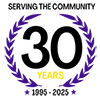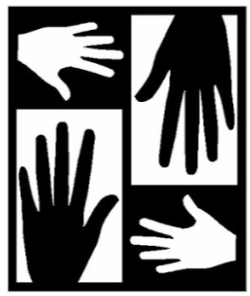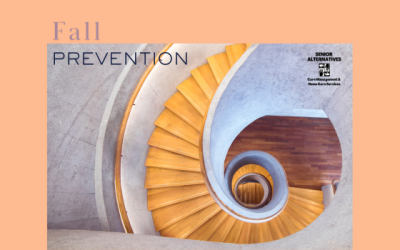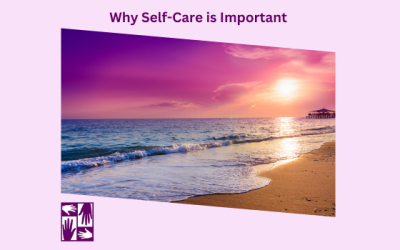September 21, 2021

10 Early Signs and Symptoms of Alzheimer’s
Memory loss that disrupts daily life may be a symptom of Alzheimer’s or other dementia. Alzheimer’s is a brain disease that causes a slow decline in memory, thinking and reasoning skills. There are 10 warning signs and symptoms caregivers can look out for. If you notice any of them, don’t ignore them. Schedule an appointment with your senior care doctor.1Memory loss that disrupts daily lifeOne of the most common signs of Alzheimer’s disease, especially in the early stage of memory care, is forgetting recently learned information. Others include forgetting important dates, events, or care services appointments, asking for the same questions over and over, and increasingly needing to rely on memory aids (e.g., reminder notes or electronic devices or in home care) or family members for things they used to handle on their own.What’s a typical age-related change?Sometimes forgetting names or appointments, but remembering them later.2Challenges in planning or solving problemsSome people living with dementia may experience changes in their ability to develop and follow a plan or work with numbers and may require more elderly assistance. They may have trouble following a familiar recipe or keeping track of monthly bills. They may have difficulty concentrating and take much longer to do things than they did before.What’s a typical age-related change?Making occasional errors when managing finances or household bills.3Difficulty completing familiar tasksPeople with Alzheimer’s often find it hard to complete daily tasks and have difficulty with at home care. Sometimes they may have trouble driving to a familiar location, organizing a grocery list or remembering the rules of a favorite game.What’s a typical age-related change?Occasionally needing help to use microwave settings or to record a TV show.4Confusion with time or placePeople living with Alzheimer’s can lose track of home care services, dates, seasons and the passage of time. They may have trouble understanding something if it is not happening immediately. Sometimes they may forget where they are or how they got there.What’s a typical age-related change?Getting confused about the day of the week but figuring it out later.5Trouble understanding visual images and spatial relationshipsFor some people, having vision problems is a sign of Alzheimer’s. This may lead to difficulty with balance or trouble reading. They may also have problems judging distance and determining color or contrast, causing issues with driving which may require a senior helper.What’s a typical age-related change?Vision changes related to cataracts.6New problems with words in speaking or writingPeople living with Alzheimer’s may have trouble following or joining a conversation. They may stop in the middle of a conversation and have no idea how to continue or they may repeat themselves. They may struggle with vocabulary, have trouble naming a familiar object or use the wrong name (e.g., calling a “watch” a “hand-clock”).What’s a typical age-related change?Sometimes having trouble finding the right word.7Misplacing things and losing the ability to retrace stepsA person living with Alzheimer’s disease may put things in unusual places. They may lose things and be unable to go back over their steps to find them again. He or she may accuse home care providers or others of stealing, especially as the disease progresses.What’s a typical age-related change?Misplacing things from time to time and retracing steps to find them without additional senior assistance.8Decreased or poor judgmentIndividuals may experience changes in judgment or decision-making. For example, they may use poor judgment when dealing with money or pay less attention to home care such as grooming or keeping themselves clean.What’s a typical age-related change?Making a bad decision or mistake once in a while, like neglecting to change the oil in the car.9Withdrawal from work or social activitiesA person living with Alzheimer’s disease may experience changes in the ability to hold or follow a conversation. As a result, he or she may withdraw from hobbies, elderly services, social activities or other engagements. They may have trouble keeping up with a favorite team or activity.What’s a typical age-related change?Sometimes feeling uninterested in family or social obligations.10Changes in mood and personalityIndividuals living with Alzheimer’s may experience mood and personality changes. They can become confused, suspicious, depressed, fearful or anxious. They may be easily upset at home, with an elderly caregiver, with friends or when out of their comfort zone.What’s a typical age-related change?Developing very specific ways of doing things and becoming irritable when a routine during care at home is disrupted.Early Detection MattersIf you notice one or more signs in yourself or another person, it can be difficult to know what to do. It’s natural to feel uncertain or nervous about discussing these changes with others. Voicing worries about your own health might make them seem more “real.” Or, you may fear upsetting someone by sharing observations about changes in his or her abilities or behavior. However, these are significant health concerns that should be evaluated by a doctor, and it’s important to take action to figure out what’s going on.What to do if you notice these signsIf you notice any of the 10 Warning Signs of Alzheimer’s in yourself or someone you know, don’t ignore them. Schedule an appointment with your doctor.With early detection, you can explore treatments that may provide some relief of symptoms and help you maintain a level of independence longer, as well as increase your chances of participating in clinical drug trials that help advance research. You can also get additional elderly care at home with a care agency such as Senior Alternatives.Senior Alternatives
Senior Alternatives provides care management and caregiving services. Our Geriatric Care managers are Master’s-level Social Workers who have extensive experience working with seniors. Our Care Aides go through a stringent vetting process and as an employee of Senior Alternatives, are licensed and bonded. All caregivers are registered in the State of California’s Home Care Registry. Our Care Aides are overseen by our Master’s-level Care Managers helping to ensure the best possible outcomes.
We can offer a free one-hour complimentary discussion with a member of our Care Management team to go over the details of their services which include:
· Medical advocacy – managing the maze
· Family mediation
· Navigating complex family dynamics
· Management of client and caregiver anxiety
· Support during hospitalization
· Review of placement options
· Emergency plan implementation
· Oversight and supervision of Care Aides
· Safety recommendations
· Plan of care
Related Articles
September is Fall Prevention Awareness Month
As we get older, a simple trip or fall can have serious consequences, impacting our mobility and confidence. The good news is that most falls can be somewhat preventable, read on for more tips…
Funding Options for Older Adults
This guide will walk you through the many ways to pay for senior care and support, it will show how families and elders can supplement care and senior housing.
International Self-Care Day 7/24
The date, 7/24 symbolizes the idea that self-care should be practiced 24 hours a day, 7 days a week. It’s a gentle nudge to make self-care a daily priority, not just a once-a-year activity. Read more on ways to create a self-care plan.





